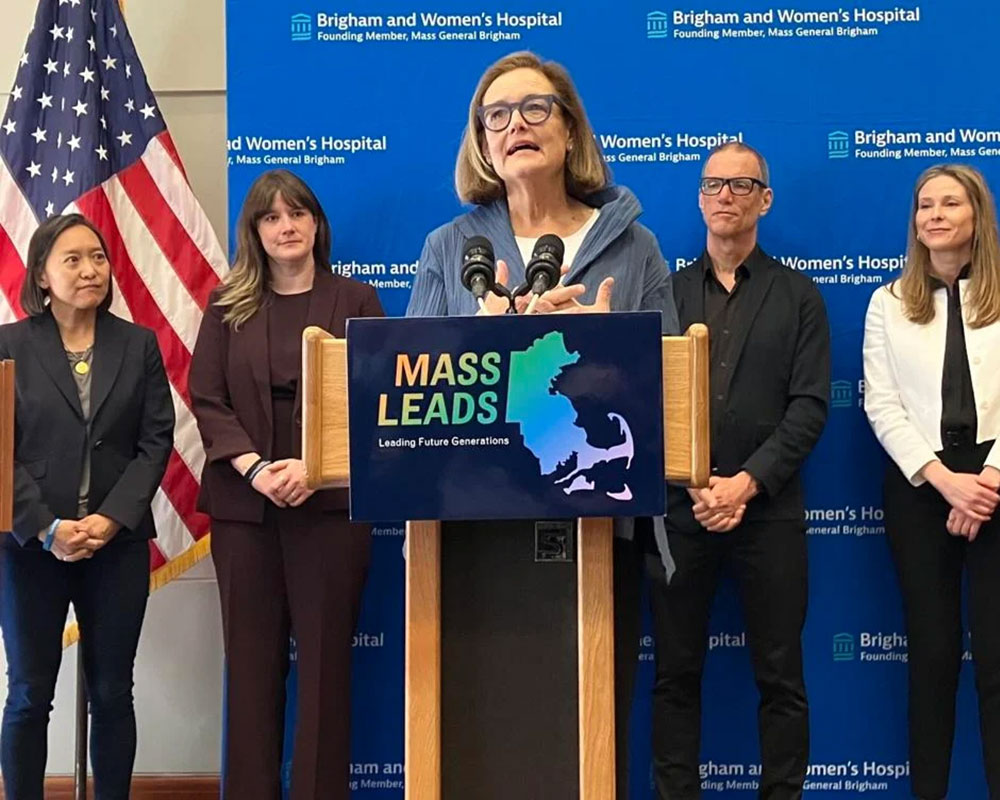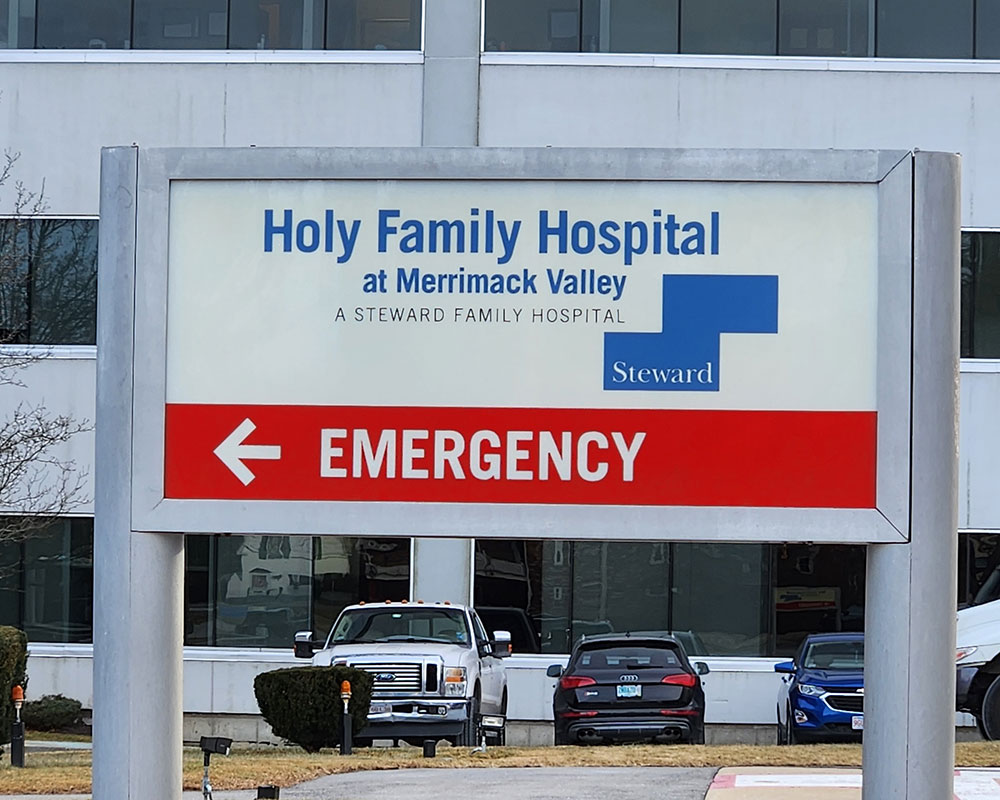Massachusetts Health and Human Services Secretary Kate Walsh issued a broad warning Tuesday about hasty legislative solutions to address the role of private equity in health care, as officials and hospital leaders continue to brace for potentially major care disruptions amid Steward Health Care’s financial challenges.
Walsh did not invoke any specific proposal when asked about the role of state or federal legislation to respond to the Steward crisis, following recent Beacon Hill hearings focused on the negative impact of private equity on patient care and possible strategies to boost regulatory oversight of health care transactions.
“I think that the health care system in our country is really, really complicated, and I worry about broad brushstrokes that say, ‘private equity bad, not-for-profit good,’” Walsh told reporters following an event at Brigham and Women’s Hospital.
“I think we have seen an extreme set of circumstances, the choices that Steward made as a health system to capitalize their system—it just didn’t work,” the secretary continued. “And so what we need to do when we get patients, and staff, and people and regions through this is sort of step back. I think legislation in haste, you kind of repent in leisure. So, I think there’s a lot to consider. We’ve learned a lot from these hearings; I’ve learned a lot from these hearings.”
Steward, which operates eight hospitals in Massachusetts and has a hefty backlog in unpaid rent, was owned by a private equity firm for about a decade.
Senate Ways and Means Chairman Michael Rodrigues last week said he wants to “take for-profit, equity-based companies out of the health care system.” Gov. Maura Healey has called on Steward to exit the state’s health care market.
The Healey administration on Thursday will start holding private meetings with local health care leaders to help navigate uncertainty around patient care as the Steward crisis unfolds.
“I think there’s something very reassuring of our preparation,” said Walsh, who added the planning will focus on patients and staff. “Remember, lots of staff are working in hospitals that they know are financially troubled. We want to support them on that journey.”
Walsh did not say whether officials have heightened concerns about certain hospitals or regions.
“We’re committed to making sure that each region has health care that it needs, and that’s what part of this preparation is about,” she said. “Brockton (Neighborhood) Health Center got very busy when Brockton Hospital had its fire. We want to make sure that we can anticipate and prevent those kinds of challenges going forward.”

Health and Human Services Secretary Kate Walsh speaks during an event at Brigham and Women’s Hospital on Tuesday, April 16, 2024. (Alison Kuznitz/SHNS.)
Alison Kuznitz.
